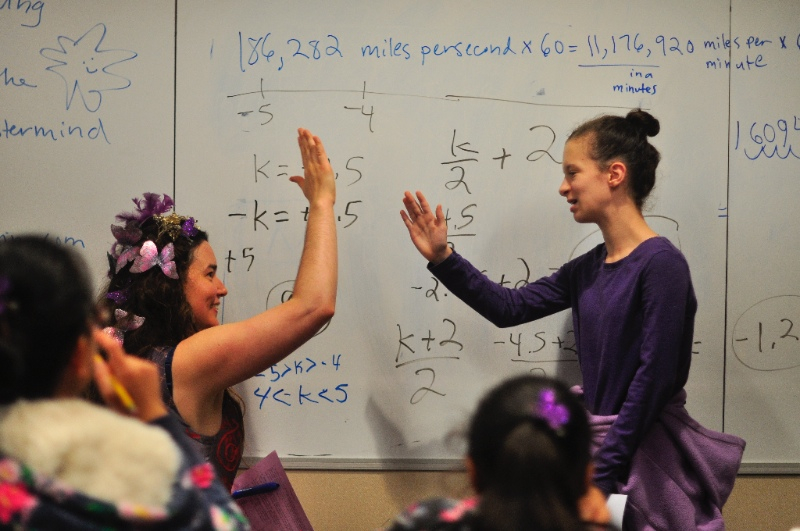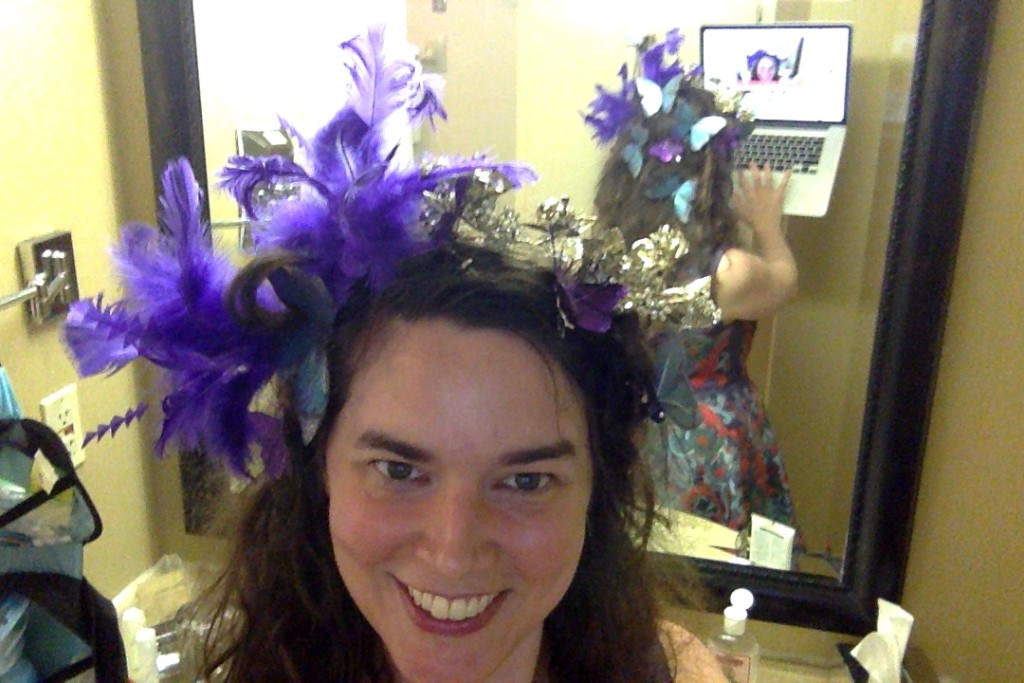Right now, there are two different models of learning in the world – the “enthusiasm” or “love” model of learning, which is all about growth, creativity, freedom, the enjoyment that comes from mastery, and learning so that you can fulfill your own vision.
Then there is the “fear” model of learning, which is competitive, has a scarcity orientation, is institutional, about checking off boxes, and outer-directed. There’s a terror of being left out, left behind, or found inadequate. If you fail, it means you’re fundamentally flawed. And it’s about kissing ass, meeting others’ expectations, and doing what your told.
Guess which model I’m about?
You are right. I am about the love!
It has become super clear to me that the kids I’m meant to work with are the next generation of visionaries. These are the kids with passion, who don’t fit in, who stand out from the crowd in some way.
Parents of these kids view their kid’s uniqueness as precious and inviolable. They want their kids to transcend the system, have the tools to flourish anywhere, and create their own life and reality. And right now they are experiencing math as a stumbling block.
These parents know that the world is not always friendly and supportive towards those who are different, and they want their kids to have the support they need to be resilient in hostile environments, and to be able to change their environment or even create their own environment.
Yet these skills are VERY RARELY, if EVER, taught in conventional educational environments, because our current educational model, for all its beauty and strength, is still at least 100 years out of date.
In fact, the characteristics and behavior needed to succeed in this new world are frequently actively DISCOURAGED (consciously or unconsciously), even in the most elite educational environments.
But these skills, and these passionate, creative, visionary kids, are exactly what the new world needs.
Because our world is truly, profoundly shifting.
The new world is all about being in your own unique zone of genius, having a vision, and the courage to unfold that vision and fight for it.
The new world is full of individuals sharing their souls and their unique gifts with vulnerability.
It’s about taking a stand for what you really want and what you really believe in.
It’s about the willingness to blaze your own trail – with like-minded mentors, guidance, and community – instead of following a pre-set career path.
This new world is about making your own game, or changing the game.
It’s about pleasing yourself, intrinsic motivation, and the deep satisfaction and joy of doing what you love. It’s about growing. It’s about self-direction and self-determination in a community of like-minded souls. It’s about synthesis and evolution.
On the other hand…
The old world is about filling a role, being obedient, and going through the motions. It’s about winning the game, thinking that there’s only room for one at the top. It’s about pleasing others in order to be rewarded with grades, money, or status. It’s about following a leader and regurgitating others’ ideas.
That’s what a lot of education prepares students for – the old world. But it’s not preparing students for THIS world, the new world.
And frequently these educational environments are downright unsupportive, if not openly hostile, towards the passionate, courageous visionaries of the future.
If you’re the parent of one of these kids, you know deep in your soul that your kid is actually going to need MORE skills to blaze their own trail.
They’ll need a deeper connection to their own truth and their own vision.
They’ll need to be more courageous, articulate, skillful, and strong.
They’ll need to be MORE resilient in the face of fear, doubt, disappointment, and confusion.
Because the path of a passionate visionary requires greater inner strength and outer skill than a pre-set path.
It requires a deeper and deepening connection to our own inner guidance, intuition, and even to God (whatever language you use – Jesus, Buddha, Allah, Source, Spirit, Soul, Guidance…).
I know, because this is what’s been required of ME.
In the world around us, there is just so much fear about what is changing. How the old sources of security, income, and structure are crumbling, or already gone. And people are fighting over the scraps.
Yet the other world of plenty is available. It’s right in front of us. The same tools that are dismantling the old order are the exact same tools that allow gutsy individuals to spread their vision, thrive, and be more rewarded than ever before. When the means of production and distribution are no longer centralized, it’s not about waiting for someone else to “discover” you or give you permission. It’s about having the guts to validate yourself and be willing to hold to your vision when no one else is seeing it. And the strength to keep going.
This new world requires new skills, new ways of navigating, and new ways of being, which are NOT taught or encouraged in the vast majority of conventional education.
So what do you do?
I am here to help these kids who are unique, who are creative, who are passionate, who have vision, and who stand out from the crowd.
I mentor these future visionaries. I know what it takes, because I am creative, passionate, visionary, and do not fit in. And because I have blazed my own trail – and I am continuing to do so every day.
I am here to help make math master-able and magical for these kids on a mission – AND to use math as a vehicle to learn these larger meta-skills that visionaries need and that the new world requires.
Does this resonate with you? Does this describe your kid and your family? Then I would absolutely love to connect with you.
Just click here to get started with your special application for my one-on-one math tutoring programs.
Sending you so much love,
REBECCA
Related posts:
What I learned on the streets of Paris, and in a Dutch grocery store
I just can’t keep this a secret any longer
What a Balinese dancing queen taught me about praise and encouragement
Self-made heroes: the dancers of Planet B-Boy












